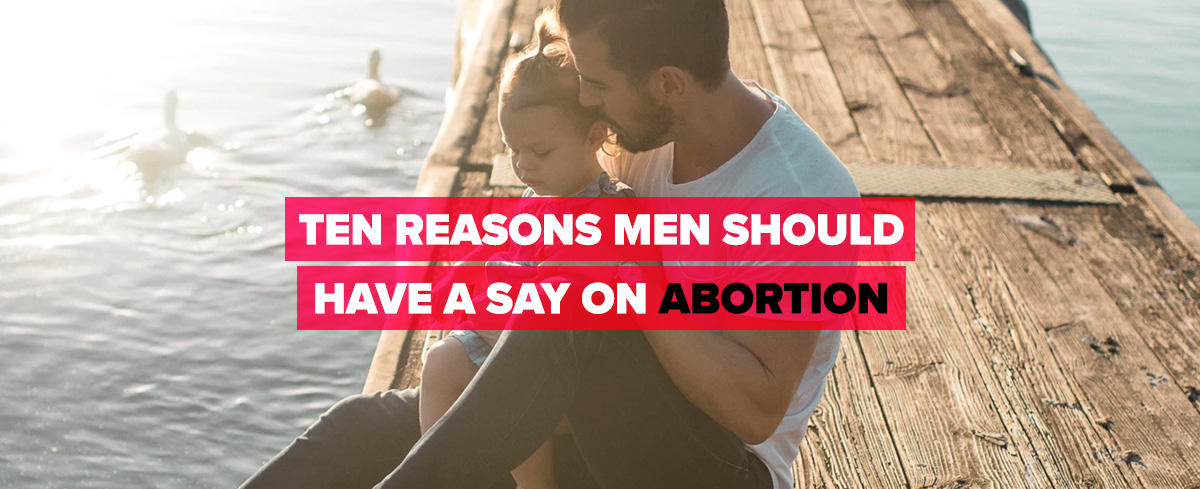In a recent interview with Andrew Denton, Madonna has said that she wants to challenge the Pope regarding the Catholic Church’s opposition to abortion. Not only that, but she double-down and said that Jesus would support a woman’s right to choose.
Is it just me, or is Madonna looking and sounding like the product of a computer-generated deep fake? But there’s a fundamental problem with her approach here, and it’s that it betrays the underlying feminist rhetoric of #NoUterusNoOpinion. Because both the Pope and Jesus are men. So, doesn’t that mean that their opinions should be automatically excluded?
For example, Jessica Valenti writes in The Guardian that, “If you think men should help decide if a woman gets an abortion, just shut up.” This is because, authors such as Valenti believe that it’s simply, “Her body, her choice. Period.”
However, many other women would disagree. In fact, Dr. Brain Clowes points out that approximately 80% of all pro-life activists are women! Following on from this, an increasing number of men who are pro-choice agree that this issue should not be limited to only one gender. Arthur Shostak, for instance, writes in “Men, Me, and Abortion” that:
As conception is not the product of masturbation, it is not “her” abortion alone, it is our abortion.
I agree. And as such, what follows are ten reasons why men should not only be allowed, but also required to have an opinion on this controversial ethical issue:
1. First, because the child is genetically half theirs. Yes, it is the woman’s role to physically nurture the physical development of the baby in her womb, but it is still biologically the product of both male and female chromosomes. As Bernard Nathanson writes in his book, Aborting America (Life Cycle Books, 1979):
There is a strange bit of logic here…The feminists have waged a salutary drive to bring the father into the birth process, from prenatal exams through the delivery room. At the same time they would exclude the man from the abortion decision and claim that sector of pregnancy for themselves. Pregnancy is the result of the act of two people, and it seems manifestly unfair to say that women have exclusive rights when the consequences of abortion involve both sexes.”
All of which is to say, the father should have a right to say what happens to the person who, without his involvement could not have physically come into existence. As Erica C. Graham from Cedarville University rightly concludes:
Men and women have equal rights over a child after birth. Assuming that the fetus is a person possessing basic human rights, these rights should not change because of the child’s location. However, the mother does have significant moral authority in procedures affecting her health. Because abortion is becoming so safe, it should be considered primarily a procedure affecting the child’s existence and secondarily affecting the mother’s health. Abortion, then, is a decision involving the health of two individuals (mother and fetus) which two persons have legal and moral authority in the decision (mother and father). With this understanding of the health effects of abortion, it is easy to see that men and women should have equal decision making power because it primarily affects the child over which they usually have equal rights.
2. Second, because men should take responsibility for the consequence of their actions, especially when it comes to sexual intercourse. In her article, “The Man Matters in Abortion: Make Him Responsible, a Sociologist Urges,” Faye Flam quotes Art Shostak as saying, “A man should sweat a pregnancy he helped to create. It makes them better men…and that could really benefit women.”
This is because the sexual act leaves women with the burden of caring for and delivering the person that the union produced, and thus, the burden of responsibility should be on the father of the child to provide for both the mother and the child they helped to produce. As U.S attorney Thomas Wheatley has written in USA Today:
When young men are incessantly told that the pinnacle of manhood is eating, sleeping and ejaculating, is it really so surprising when they shy away from defined gender roles of a higher calling?
We must demand more…
3. Third, because it is illogical to argue that you can only have an opinion regarding an issue that you have personally experience. This argument employs what is commonly referred to as the “genetic fallacy”. i.e. that the truth of one’s position doesn’t depend on the gender of the person who is expressing it but on the integrity and accuracy of the argument itself. As Jim A.C. Everett, from the University of Oxford, writes in Practical Ethics:
But even taking the (flawed) idea that only women are affected by abortion, the claim that therefore only women can discuss it evidently fails as a principle. We don’t think that only homosexuals can discuss gay rights, or that only black people can discuss affirmative action, or that only disabled people can discuss equal rights in the workplace. If we want to say that people can only discuss things that are personally relevant to them, we pretty soon end up on a situation where no-one could ever discuss anything…
Similarly, Roland C. Warren persuasively argues in The Federalist:
Should a woman who is a stay-at-home mom and, therefore, makes no income outside the home, have a say on tax policy? After all, she doesn’t directly pay taxes for an income. Or, should someone who does not own a gun or has never been injured by a gun have a say in what our nation’s gun law should be? Again, a non-gun owner is not going to be directly impacted if the access to guns is limited.
And, when you consider this perspective in light of our nation’s history, it’s especially troubling. For example, consider the Civil War. The South was primarily an agrarian society that, in large measure, was structured and directly dependent on slave labour. Indeed, a key aspect of the South’s “states’ rights” argument was that since the North’s society and economic system would not be as directly impacted by the abolition of slavery, the North should have no say. Indeed, “no slaves/no say” was the South’s proverbial battle cry.
4. Fourth, because if the mother decides to go ahead with the pregnancy, then the father is (rightly) required to provide ongoing child support. As far back as 1987 Rosenwasser, Wright and Barber concluded:
Although the woman is the one more directly involved in a pregnancy due to the inescapable fact that she carries the fetus in her body for 9 months, her mate is undeniable involved also. If the child is born, it will be his child as well as hers. He will be legally responsible for providing for that child until he or she is 18. If a husband and wife should divorce, the man can be sued for child support.
5. Fifth, because abortion affects the dynamics of the couple’s relationship. D Naziri found that in approximately half of the couples that went through an abortion “the relationship suffered serious after-effects.” So much so, that Dr. Naziri concluded:
According to the men we interviewed…the unwanted pregnancies and its termination constituted a critical phase in their relationship. Abortion can strongly affect a relationship (eventually leading to rupture), by confronting contradictory or simply different desires…Even when abortion has been decided upon jointly and there is no apparent conflict (which is less common in our sample, as I already stressed), the man questions his partner’s investment in the relationship and his role as current or future parent, the power that each holds over the other, and the conditions that allow him to preserve a personal space, to achieve personal fulfilment, and to maintain a sufficient commitment to the relationship, at the same time.
6. Sixth, because men played an integral role in the legalizing of abortion. One of the main objections against the decision of places such as Alabama to ban abortion is that it was voted on largely by men. However, not only does this overlook the fact that it was signed into law by the female Governor of Alabama—Kay Ivey—but the original panel which decided on the legality of Roe vs Wade was completely male!
Thus, if this line of argument were to be applied consistently then, as David Hershenov argues in Public Discourse, the original decision legalizing abortion should also be overturned as well as it was made by nine men on the U.S. Supreme Court.

7. Seventh, because abortion affects men—as well as women—in a profoundly negative way. There has been an increasing body of peer-reviewed research substantiating the fact that men often suffer psychologically when their partner elects to terminate the pregnancy. This includes feelings of guilt, anger and grief. As Corrine Barraclough writes in The Daily Telegraph:
Research suggests that men can experience grief and emotional distress in relation to abortion. That makes sense, they’re human beings too.
Barraclough then goes on to explain:
In 2011, an Australian researcher, Dr Kaeleen Dingle from the University of Queensland, presented a study at the World Congress of Asian Psychiatry in Melbourne showing the connection between young men and depression.
She found young men whose partners aborted were twice as likely to use substances and suffer depression compared with men who had not had that experience.
“Male suicides can be both directly and indirectly related to abortion,” Cook says.
“One of the biggest predictors of male suicide is relationship breakdown. Unless work is done towards resolution, abortion trauma often destroys relationships.”
She adds that unresolved trauma is a frequent causal factor in domestic violence. Why is no one talking about this?
8. Eight, because you would have to rule out women who have had a hysterectomy or are no longer fertile. As Brian Clowes argues:
Sometimes abortion advocates say that men should not be able to speak out against abortion simply because they can’t get pregnant. If they are to be consistent, they should reject the leadership of any pro-abortion woman who is post-menopausal or who is sterilized, because they can’t get pregnant either. For years, NARAL Pro-Choice America was run by 60-year-old Nancy Keenan. The National Organization for Women is headed by Terry O’Neill, also 60. 73-year-old Eleanor Smeal is President of the Feminist Majority. Loretta Ross, co-founder of Sister Song, is 59 years old. Other very prominent pro-abortion women include Nancy Pelosi (72), Faye Wattleton (69), Frances Kissling (68), Kate Michelman (70), and Hillary Clinton (71).
9. Nine, because it dehumanises men to exclude them from the debate. One of the most basic—and obvious—aspects to human existence is that males and females share in a common experience of having been in a womb. Hence, as Daniel Hoffman rightly points out:
Men are not simply “male.” Their maleness is only one aspect of their being. They are also human: fathers, sons, brothers, children, adults, and former infants. It is unclear why this one aspect of maleness should trump other aspects, which may be relevant. For example, all males were once infants in utero. All males were once potential victims of abortion, and many abortion victims are, in fact, male. Why should these realities not impart to men a right to speak on the matter? Why should it only be that their maleness precludes them?
10. Finally, because in a free and open democratic society, everyone should be able to voice their opinion. The problem with the argument that men should not be allowed to have an opinion on a subject such as abortion is that it is fundamentally sexist. What’s more, it also doesn’t account for the fact that the views regarding abortion between men and women are strikingly similar. As Dr. Jesse Marczyk writes in Psychology Today:
…men and women do not appear to differ appreciably in their views regarding abortion. According to some Gallup data from 1975-2009 concerning the matter, between 22-35% of women believed abortion should be legal in all circumstance, 15-21% believed it should be illegal in all, and 48-55% of women believed it should be legal in some circumstances; the corresponding ranges for men were 21-29%, 13-19%, and 54-59%, respectively.
Clearly, there are many reasons why the opinions of men are just as valid as those of women, especially regarding the decision as to whether or not their baby ultimately lives or dies. The hashtag #NoUterusNoOpinion might make for a catchy slogan but it fails miserably as an argument. And as a society, we should demand more in our public debates. Not only that, but I think that Jesus Himself would especially agree.























You must be logged in to post a comment.